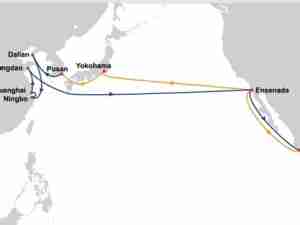While rates for dry bulk vessels have recovered from record low levels seen in 2008 when global turmoil battered earnings, analysts say the seaborne sector still needs to see a stronger pick up in global demand for key commodities such as coal and iron ore.
"I think probably there will be a depressed market (in 2011) because world trade depends on demand. There has been such a downturn in the last couple of years," International Chamber of Shipping (ICS) chairman Spyros M. Polemis told Reuters.
"For demand to increase substantially the economic situation has to change ... the economies of many countries in the world like European nations and the United States are with problems," said Polemis, whose association represents 75 percent of the global shipping industry.
The Baltic Exchange's main sea freight index, which tracks rates to ship dry commodities, collapsed to a record low in December 2008 of 663 points and has remained volatile since then. It has recently reached 2,840 points.
The main index has been erratic this year, as it was in 2009, because of swings in Chinese demand for iron ore, the primary ingredient of steel.
Average earnings for capesize vessels -- the largest class of dry bulk ships -- have dropped to $37,445 a day from their peak of $233,988 a day in June 2008.
Dry bulk ship owners ramped up orders of vessels before the economic downturn in 2008. It normally takes three years for a ship to be delivered after ordering with the number of vessels hitting the water gathering pace this year.
Ship broker SSY forecast net fleet growth in 2010 of 72 million deadweight (dwt) tonnes, versus 38 million dwt last year and 27 million dwt in 2008.
"We expect rates to be depressed. It is compounded by the supply issue without any doubt because a lot of ships are being built because they were ordered during the good period," Polemis said on the sidelines of an ICS conference in London.
"They obviously will have a tremendous impact as there will so many more ships available," he said in an interview.
Tufton Oceanic, advisers to the world's largest shipping hedge fund, told Reuters last month it expected the dry bulk fleet to grow for up to three years, keeping freight rates pressured.
"The crisis is going to last, I can't predict how long it is going to be. It is not easy for the demand side to increase -- people have to have gainful employment in order to spend," Polemis said.
Nevertheless, the shipping industry would cope with the conditions despite the expected turbulence ahead, he added.
"A lot of companies will have to tighten their belts and have to look at their expense side because their income is going to be probably reduced," Polemis said. "But shipping has adjusted to these ups and downs over the years, so I expect that this will happen again in 2011." (Reuters)







